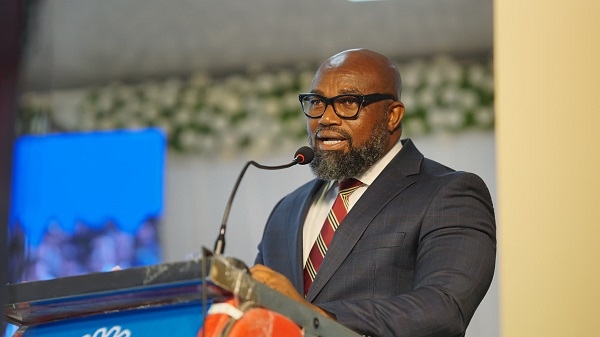 Dr Daniel McKorley, Executive Chairman of McDan Group
Dr Daniel McKorley, Executive Chairman of McDan Group
The winds of global trade have shifted once again—and not in our favor.
Major economies are escalating tariff wars that are reshaping global commerce. The United States has imposed tariffs of up to 145% on Chinese goods, prompting China to retaliate with tariffs as high as 125% on American products. These are not just headlines—they are tremors shaking the foundations of global supply chains, investment decisions, and trade flows.
And Africa? We are not exempt from the aftershocks.
Recent developments show that several African nations are being caught in the crossfire of this global economic tug-of-war:
• Lesotho, a major textile exporter, now faces a 50% U.S. tariff, putting thousands of jobs at risk.
• Madagascar, the world’s leading supplier of vanilla, has been hit with a 47% U.S. tariff, threatening its most valuable industry.
• Mauritius is contending with 40% tariffs on various goods.
• South Africa is being taxed up to 31% on exports of steel, aluminum, and citrus.
• Nigeria, Africa’s largest economy, now faces a 14% tariff, adding pressure to its oil-dominated exports.
• Ivory Coast, a global cocoa powerhouse, is confronting 21% tariffs on a key commodity.
• Zimbabwe, in a bid to ease tensions, has eliminated tariffs on U.S. goods—even as its own exports face 18% tariffs.
This isn’t merely an economic inconvenience—it’s a wake-up call.
Global markets are becoming less predictable and more protectionist. Africa must stop waiting to be included and instead, rise to the moment by structuring itself to trade within.
AfCFTA: Africa’s Shield and Sword
The African Continental Free Trade Area (AfCFTA) is the largest free trade agreement in the world by number of participating countries. It presents Africa with a bold and transformative opportunity to reduce its dependence on foreign markets and build resilient intra-continental value chains.
According to the World Bank, effective implementation of AfCFTA could:
• Increase intra-African trade by over 81% by 2035,
• Boost Africa’s income by $450 billion, and
• Lift 30 million people out of extreme poverty.
By eliminating trade barriers, harmonizing customs procedures, and opening up markets across the continent, AfCFTA allows African businesses to scale, diversify, and innovate without relying on foreign policies.
Imagine:
Cotton grown in Burkina Faso is spun and sewn in Ethiopia, then sold in Accra.
Cocoa harvested in Côte d’Ivoire is processed into premium chocolate in Ghana, and stocked in Kenyan supermarkets.
Lithium mined in the Democratic Republic of Congo powers battery factories in Rwanda or South Africa, fueling a continent-wide green revolution.
These are not far-fetched dreams. These are practical, actionable strategies—if we act now.
The Time to Act Is Now
The global economy is becoming increasingly fragmented. Africa must not become collateral damage in someone else’s trade war. Instead, we must turn inward—strengthening cross-border trade and building value chains that are truly ours.
The question is no longer why AfCFTA.
The question is how fast we can align, collaborate, and deliver.
Governments must prioritize infrastructure that supports intercontinental trade.
Private sector leaders must forge partnerships that extend beyond national boundaries.
African youth must be empowered to build businesses that serve a continental—not just a local—market.
In Conclusion
Trade wars will rise and fall. Tariffs will come and go. But Africa’s greatest insurance policy lies in trading with itself.
Let us seize this moment—not with isolation, but with integration.
Let us build industries, create jobs, and keep wealth circulating within our borders.
If the world is divided by tariffs, let Africa be united by trade.


